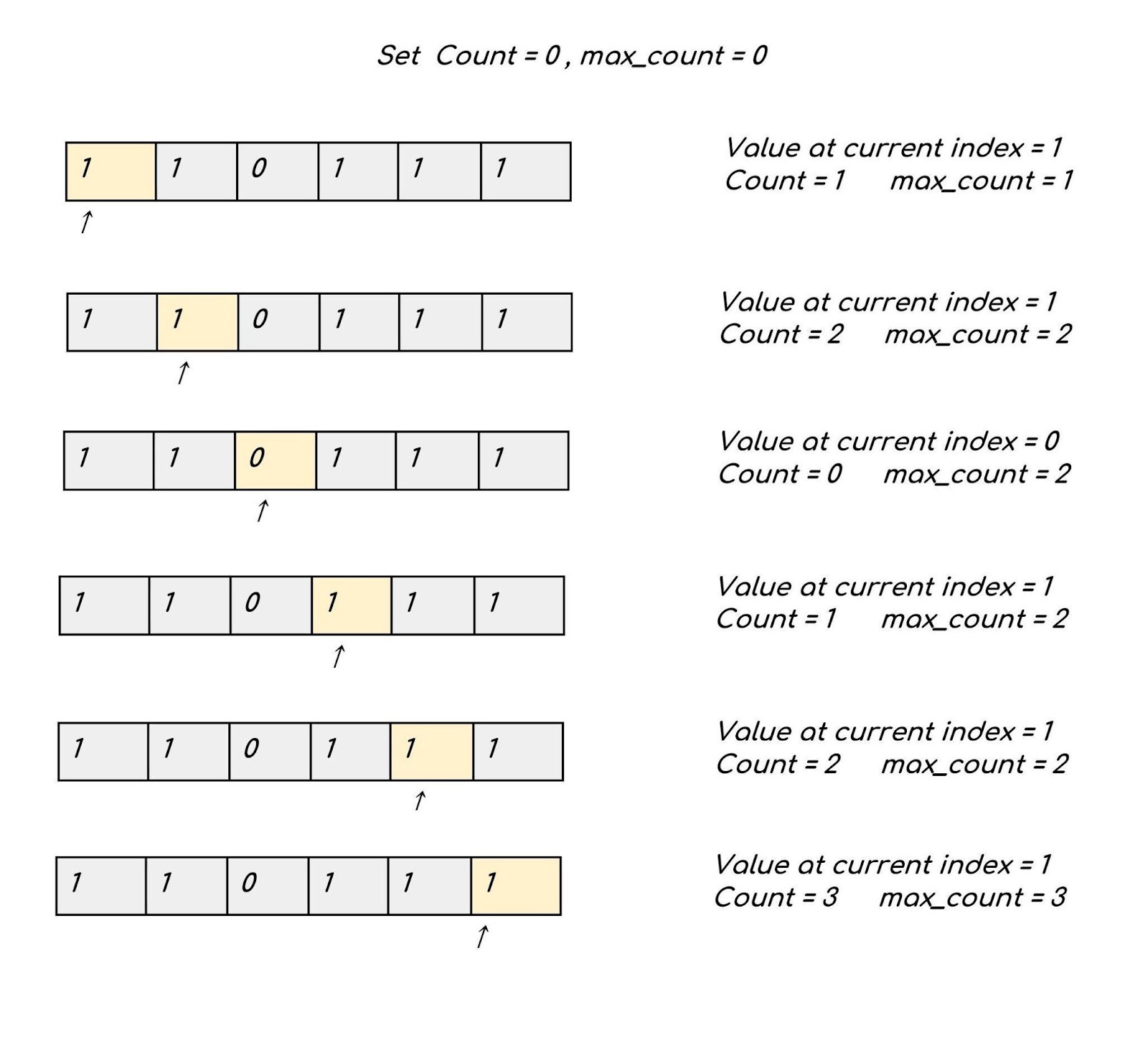 Logicmojo - Updated Aug 28, 2021
Logicmojo - Updated Aug 28, 2021
Problem Statement: Max Consecutive Ones
The problem statement is: Given an array A, find the maximum number of consecutive 1s in the array.
Example:
A: [1, 1, 3, 2, 3, 1, 1, 1]
Max consecutive 1s: 3
Approach
1. Initialize 2 variables to 0 (one for counting and other for maximum count)
2. By using a loop (loop through the nums list) check whether the number is 1 if it is 1 then
3. Increment a counter by 1 ( note: counter is initially 0)
4. Check if the maximum count is greater than the counter, if yes then assign the counter value to maximum count if it is not 1 then assign 0 to counter
5. After looping through the list return the maximum count

C++ Implementation:
#include <bits/stdc++.h> using namespace std; class Solution { public: int findMaxConsecutiveOnes(vector < int > & nums) { int cnt = 0; int maxi = 0; for (int i = 0; i < nums.size(); i++) { if (nums[i] == 1) { cnt++; } else { cnt = 0; } maxi = max(maxi, cnt); } return maxi; } }; int main() { vector < int > nums = { 1, 1, 0, 1, 1, 1 }; Solution obj; int ans = obj.findMaxConsecutiveOnes(nums); cout << "The maximum consecutive 1's are " << ans; return 0; }
Python Implementation:
class Solution: def findMaxConsecutiveOnes(self, nums): max_ = 0 #maximum count c = 0 #counter for i in nums: if i == 1: c += 1 if max_ < c: max_ = c else: c = 0 return max_ ob1 = Solution() print(ob1.findMaxConsecutiveOnes([1, 1, 3, 2, 3, 1, 1, 1]))
Time Complexity: O(N)
Space Complexity: O(1) No extra space is used.
With this article at Logicmojo, you must have the complete idea of solving Max Consecutive Ones problem.